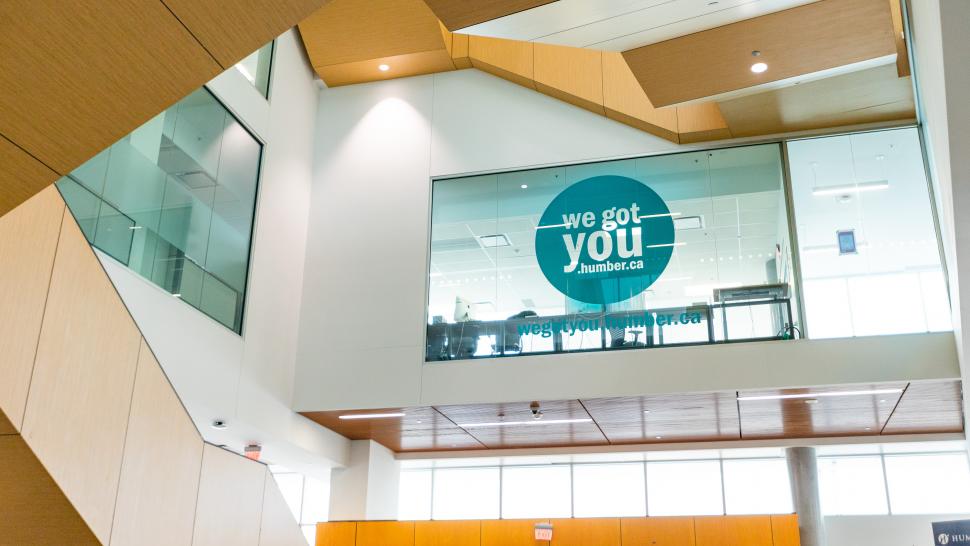
Two-years ago, Ontario entered its first COVID-19 lockdown. Since then, there have been many changes in the way people work, learn, interact and socialize. As governments across Canada, and around the world, begin the process of re-opening, Humber College reflects on how the world has changed and how its programs, students and faculty found ways to succeed and thrive throughout the pandemic.
PSW and Nursing Programs Expansion
In response to the high demand for personal support workers (PSWs) in hospital and long-term care settings, the Ontario government provided funding for tuition and paid work placements in an accelerated PSW program format completed in just six months. Humber's PSW faculty successfully planned and implemented this PSW-A program which prepared 151 graduates for the workforce in this time of substantial need.
In 2021, the provincial government announced additional funding for colleges to increase spaces for nursing programs to meet the demand in communities throughout Ontario with the goal of introducing 1,130 more practical nurses and 870 more registered nurses into the healthcare system. As such, the Faculty of Health Science and Wellness increased the number of lab spaces and class sections in order to welcome an additional 70 Practical Nursing students and 40 Bachelor of Science Nursing students for the 2021/2022 academic year.
Virtual Film Production
Lockdowns and physical distancing meant faculty members needed to find new ways for their students to collaborate while ensuring their creative processes were able to flourish. New technologies and programs, such as Unreal Engine (UE), allowed students and faculty to work in virtual environments. The Film & Multi-platform Storytelling program and the Game Programming program worked together to produce a virtual roster of films. During a single term, film students wrote scripts and shot lists and created storyboards while game students imported and prepared environments using UE Marketplace assets.
Virtually, they 'filmed' the films, shot by shot, and picture edited the films, before completing them with sound design and music. This project is an example of a studio-less approach to the virtual production pipeline and introduced a new virtual world for filmmaking.
Lessons From Abroad
With the pandemic significantly impacting global travel, Humber’s Fashion Arts and Business students arranged a virtual trip to Italy and France. The virtual trip, called “No Passport Needed,” was planned and produced by Professor Roger Gingerich’s Event Planning and Budgeting class. The students’ event allowed their guests to experience Italy and France’s fashion, food, music, and art from wherever they were.
Virtual meetings became commonplace during the pandemic and the class was able to use the technology to interview Italian artist and professor, Mario Martinelli. Martinelli shared his creative process, where his inspiration comes from, and his theories about art. This encounter was made possible thanks to the adaptability and creativity of Humber’s faculty and students.
Expressions of Gratitude
As the world navigated through unfamiliar territory, there was a growing respect for the COVID-19 frontline and essential workers. This included the resilient Humber Faculty of Applied Sciences and Technology (FAST) Technologists.
Adapting, pivoting and persevering has been the pandemic mantra, and FAST’s technologists demonstrated these traits in action. Responsible for the lab spaces at both the Humber North Campus and the Centre for Skilled Trades and Technology, Technologists were tasked with researching, sourcing, building and installing protective equipment and safety measures to ensure all training spaces and labs adhered to health and safety protocols. Protecting our students, faculty and staff from COVID-19 was the college’s priority.
Our Technologists rose to the challenge and immediately dove into learning and educating themselves on the rapidly evolving health and safety guidelines from public health and government. These ongoing measures helped ensure the continued delivery of hands-on and theoretical learning with minimal disruption throughout the pandemic.
For more stories from the past two-years about the Humber community overcoming the challenges of the pandemic visit Humber Today’s website.